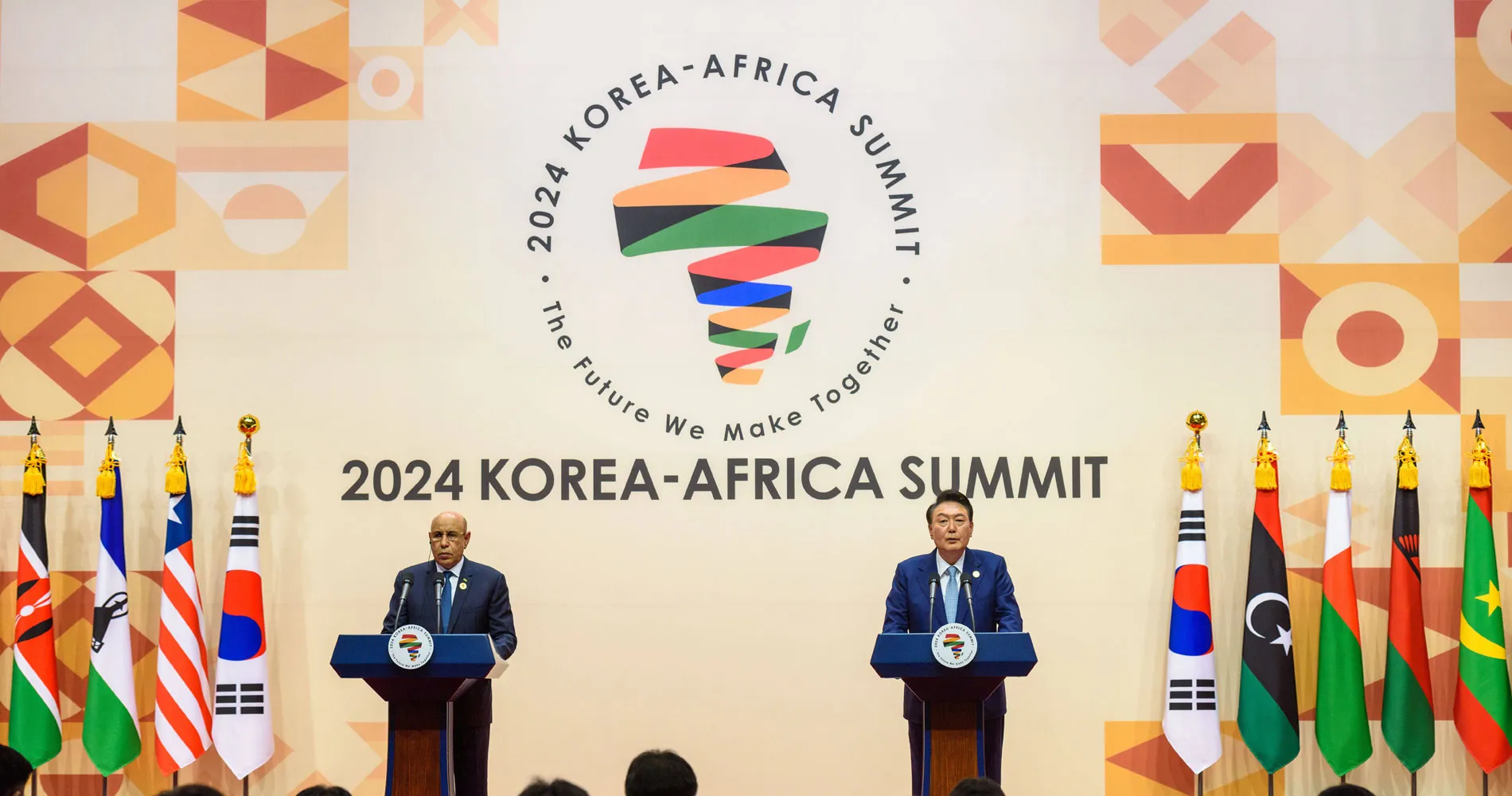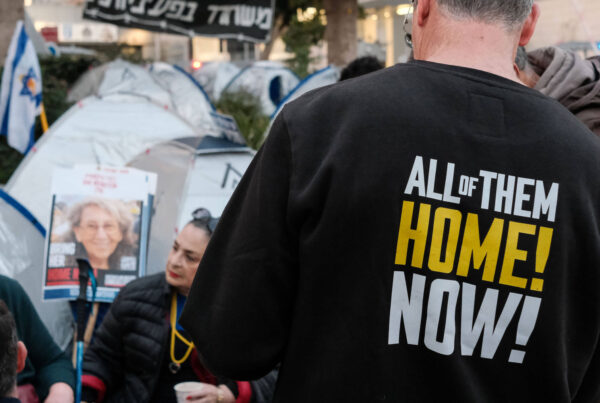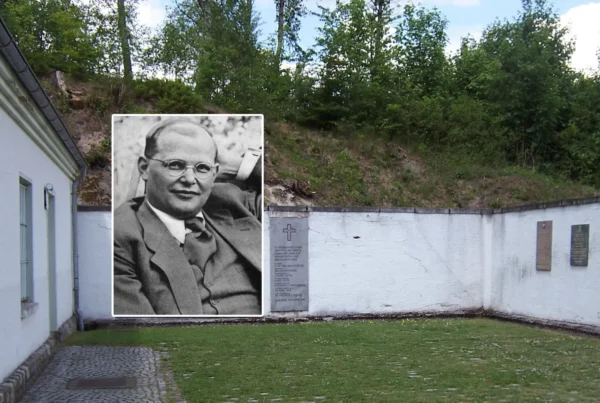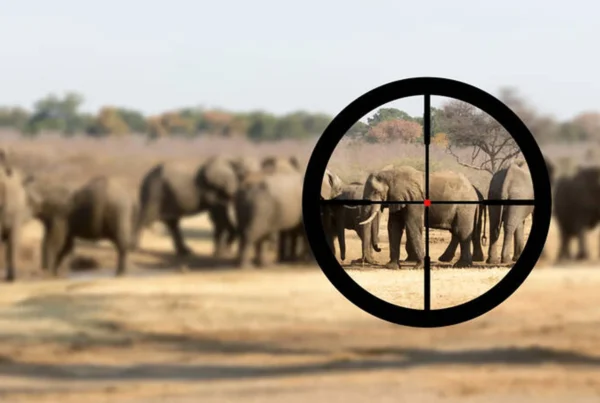Another “Africa plus one” Summit, but what is in it for Africa? African countries need to consider their own national interests when making bilateral decisions with South Korea, especially on geopolitical issues on the Korean Peninsula. The joint statement issued at the Summit referred to the need to enforce all UN Security Council Resolutions aimed at the “irreversible” denuclearisation of the entire Korean Peninsula.
Michael Asiedu
21 October 2024
Arabic version | French version
The very first Korea-Africa Summit was held in the Korean cities of Seoul and Ilsan on 4-5 June 2024. Attended by senior officials from 48 African countries, including 25 Heads of State, the Summit built on previous platforms, notably the Korea-Africa Forum and the Korea-Africa Forum on Economic Cooperation, which were launched in 2006 and are held every two years.
The Summit’s theme was “The Future We Build Together: Shared Growth, Sustainability and Solidarity”. Ahead of the Summit, the first deputy director of South Korea’s National Security Office, Kim Tae-hyo, said that “South Korea’s cooperation with Africa is not an option but a must as South Korea strives to become a global pivotal state”.
Two main issues became the focus for Seoul: minerals critical to electronics’ manufacture, and Seoul’s request for support with geopolitical tensions on the Korean peninsula. However, there was a lack of clarity from African governments as to their own priority developmental areas and partnership expectations.
In terms of critical minerals, South Korea is home to electronics giants Samsung, LG and other manufacturers of semiconductors and electric vehicle batteries, heavily dependent upon a range of specific minerals for production. China, South Korea’s main trading partner and middleman for such minerals, has tightened export controls, so alternative reliable supplies of critical minerals are vital. Africa is known to be a major supplier of such critical minerals and during the Summit South Korean, and African leaders agreed to launch a “Korea-Africa Critical Minerals Dialogue”. South Korea’s President Yoon Suk Yeol stated that this dialogue would “set an example of a stable supply chain through mutually beneficial cooperation and contribute to the sustainable development of mineral resources around the world”.
The initiative reflects the South Korean Ministry of Trade, Industry and Energy’s strategy to ensure a steady and secure supply of critical minerals for their industries. The Ministry has identified 33 critical minerals, of which 10 (including lithium, nickel, cobalt, manganese, and graphite) have been classified as “strategic” for the production of semiconductors and electric vehicle batteries. Seoul currently imports 76 percent of its critical minerals from China. If the “Critical Minerals Dialogue” is successful, this dependence on China will be significantly reduced. Again, it would lead to an increase in trade between Korea and Africa, as currently African countries account for less than 2% of South Korea’s total imports and exports.
Seoul further initiated several financial packages at the Summit to strengthen economic ties with Africa. It pledged USD 10 billion in foreign aid to Africa by 2030, in addition to USD 14 billion in export credits for Korean companies entering African markets.
Other notable bilateral deals include the signing of a five-year, USD 2.5 billion concessional loan agreement with Tanzania for access to the country’s minerals such as nickel, lithium, and graphite. Ethiopia also signed a four-year, USD 1 billion financing agreement with Seoul for infrastructure, science and technology, and urban development.
Seoul was also keen to rally support amid geopolitical tensions on the Korean Peninsula. In a move clearly aimed at reducing the threat posed by North Korea, the joint statement issued at the Summit referred to the need to enforce all UN Security Council Resolutions aimed at the “irreversible” denuclearisation of the entire Korean Peninsula. President Yeol added that his country would work with the three non-permanent African members of the UN Security Council (Sierra Leone, Algeria, and Mozambique) to put pressure on Pyongyang on security issues and to work for peace on the Korean Peninsula.
On significant remarks by African leaders, Kenya’s President William Ruto said the Summit was about “forging close ties with the Asian giants, harnessing combined strengths to promote mutual growth, address global challenges and strengthen solidarity for peace and security”. However, it appears that African governments were seeking partnerships that will attract foreign investments that generate revenue to address development challenges such as infrastructure.
But there was no concomitant clarity on what each African country’s stance on Seoul should be, and the partnership propositions appear somewhat one-sided. For instance, King Mswati III of Eswatini encouraged the Korean business community to invest in any part of the continent. President Teodoro Nguema Obiang Mbasogo of Equatorial Guinea also invited Korean companies to tap into his country’s attractive business environment. President Faure Gnassingbe of Togo pitched his country’s open economy to Korean investors and similar sentiments were expressed by other African leaders.
African leaders could have made a bolder push for a strategic “Infrastructure Dialogue” where Seoul would be guided on priority infrastructure deficits on the African continent just as “Critical Minerals Dialogue” became one of the fruits of the Summit. Such an Infrastructure Dialogue would have been consistent with Africa’s “Agenda 2063” vision which is a set of initiatives agreed by the African Union on 31 January 2015, aiming for, among other things, economic development, political integration and pan-African peace and security.
The Agenda is currently in its ninth year, yet, Africa still has one of the poorest infrastructure developments in the world. Hence, a stand-alone Infrastructure Dialogue as a fruit of the Summit would have been a bolder outcome in addition to the commitments on sectors such as education, customs and trade expressed in the Summit’s joint statement. Africa’s teeming youth expect bold proposals from their leaders at these Summits.
Seoul’s objectives for this Summit on the other hand were crystal clear: to secure access to critical minerals and to seek support on geopolitical developments on the Korean Peninsula in comparison to Africa whose pursuits seemed uncoordinated. Importantly, Africa-plus-one Summits are not new; the US, Turkey, China, Russia (to name but a few) have already held their own individual Summits with Africa. These experiences should have taught Africa that for the nations’ stances and expectations to be sufficiently visible, there should be strategic coordination on bold positions that include plans to ensure commitments and pledges will be realised. Should African leaders fail in the Summits to push boldly for their demands, their priorities and position will always play second fiddle, or worse, go unheard.







